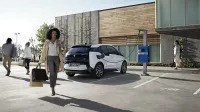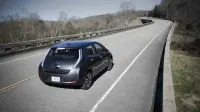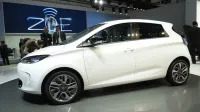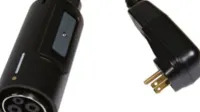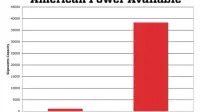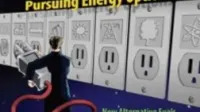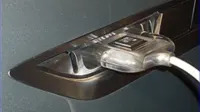Power Grid
EV drivers in Germany willing to accept slow overnight charging
Automakers around the world are pushing hard for new networks that can charge electric cars fast. In Europe, some power companies and grid operators are testing whether it might be smarter and cheaper to move into the slow lane. A 15-month study of electric car charging behaviour in Germany has concluded that consumers can be persuaded to accept slow, overnight recharging that could help avoid brownouts from surges in electricity demand or costly upgrades to power grids.
Plug-in vehicles aren't killing the grid
To paraphrase Mark Twain, rumors of the grid's demise on account of more plug-in vehicles are greatly exaggerated. And, while time is money, when it comes to electric-vehicle charging, more money means less time. At least, less time during peak demand.
South Africa taking three-year study to see if it's ready for EVs
Plug-in electric vehicles are heading for another global market, South Africa, but it may take a while. Eskom, a South African electricity public utility company, told the legislature it will conduct a three-year study to see if the local power grid can handle a bunch of plug-in cars.
French nuclear power grid could be strained by electric vehicles
File this under the "if it's not one thing, it's another" department. France, whose largest automaker Renault is already addressing concerns over what may be less-than-expected demand for electric vehicles, has a power grid that may be insufficient should consumers adopt plug-in vehicles in substantial numbers, Reuters says.
What good is an electric vehicle if there's no electricity?
A Glut Of EVs Could Make America's Shoddy Power Grid Even Worse
Grid managers debate the effects of charging 1 million new electric vehicles
As much as we like plug-in electric vehicles (PEVs), the fact is there just aren't that many of them on the roads, yet. Well the IRC, a group of power grid operators from the United States and Canada, are predicting that 1,000,000 new PEVs could be on North American roads by the end of the decade. The group has released the results of a study they conducted on what the future effect of that
Curiosity: Report says we have 35x more HP in our driveways than our power plants
It may not be a particularly glamorous definition of the automobile, but it's true on some level that cars and trucks are individual little power generators on wheels, a fact pointed out here by Wired staff writer Alexis Madrigal. Interestingly, when viewed in that light, the United States has an embarrassment of riches when it comes to overall latent power availability.
Curiosity: Report says we have 35x more HP in our driveways than our power plants
It may not be a particularly glamorous definition of the automobile, but it's true on some level that cars and trucks are individual little power generators on wheels, a fact pointed out here by WIRED staff writer Alexis Madrigal. Interestingly, when viewed in that light, the United States has an embarrassment of riches in overall latent power availability.
Plug-ins could require new 160 power plants to be built... or none at all
Studies have been performed that indicate that there is enough excess electricity already being produced to charge a nation of electric cars. One hitch to that plan, though, is that it requires people to charge their vehicles while they sleep, during "off-peak" hours. For this reason, the Oak Ridge National Laboratory ran some numbers and found that the wor
State intends to find out how much stress plug-in hybrids would put on grid
Judging by the vast array of plug-in hybrids at the past few auto show, it's reasonable to assume that at some point in the next ten to 15 years there could be millions of vehicles plugging into our nation's power grid. The Michigan Public Service Commission will be looking at this issue over the course of the next several years as part of its effort to assess the state and region's future
California utility Pacific Gas & Electric previews future energy grid
Pacific Gas & Electric's Hal LaFlash recently sat down with Todd Woody of Green Wombat and Business 2.0 a preview of some of the new-tech and green-tech changes we can expect to see in California and the rest of the country. Here's the list:

